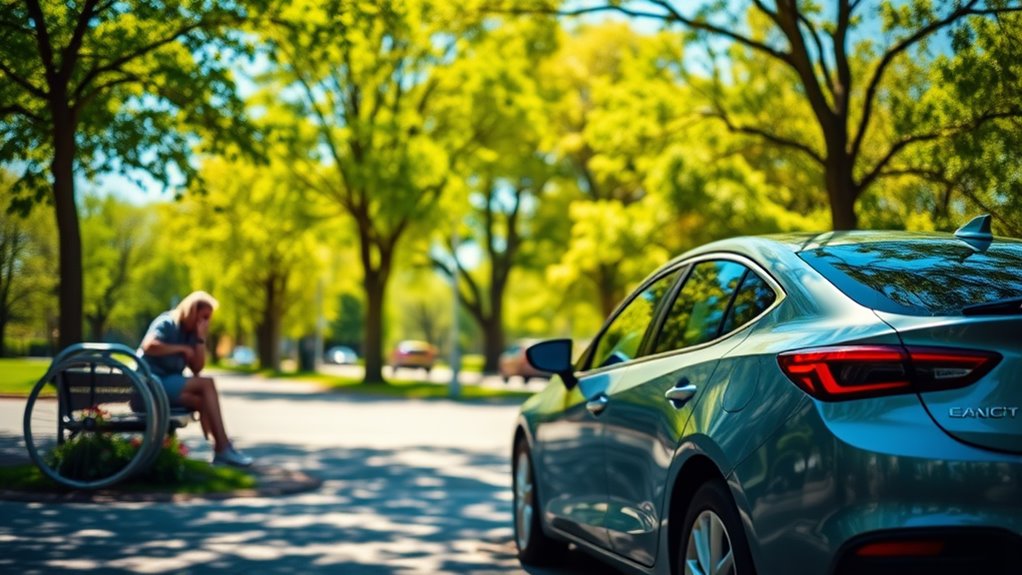Why Choose SR22 Coverage Without Ownership?
Did you know that around 30% of drivers need to maintain an SR22 filing without owning a vehicle? This option can be a practical solution for high-risk individuals who want to stay legally compliant while driving borrowed or rented cars. With lower premiums and simplified processes for license reinstatement, it's worth considering how this coverage can fit your unique situation. What factors should you weigh when deciding if this is the right choice for you?
When you find yourself in need of driving privileges but don't own a vehicle, obtaining non-owner SR22 coverage can be a vital step in meeting state insurance requirements. This type of coverage is specifically designed for individuals who've a valid driver's license and need to drive but don't possess a vehicle of their own. It's particularly relevant for those with a troubled driving history, as non-owner SR22 is often mandated for high-risk drivers who've committed serious moving violations, such as DUIs or DWIs.
Understanding the purpose of SR22 is essential. It serves as proof that you meet the minimum liability insurance standards set by your state. While SR22 isn't an insurance policy itself, it indicates that you have obtained adequate coverage, which must be filed with the state's DMV to reinstate your driving privileges. Non-owner SR22 coverage guarantees that you remain compliant with these requirements even when you're driving borrowed or rented vehicles. Moreover, SR22 serves as an important legal safeguard for those looking to restore their driving rights.
One significant benefit of non-owner SR22 coverage is its flexibility. Unlike an owner SR22 policy, which ties coverage to a specific vehicle, non-owner coverage allows you to drive any vehicle, provided you have permission. This flexibility is invaluable if you frequently rely on rental vehicles or borrow from friends and family. Additionally, by securing this coverage, you can reinstate a suspended or revoked driver's license, allowing you to regain your driving privileges without the burden of vehicle ownership. Furthermore, some insurers may not offer SR-22 filings for non-owner policies, which makes it crucial to choose the right provider.
Cost is another significant aspect to take into account. Generally, non-owner SR22 policies are less expensive than owner-based SR22 policies. While prices may vary by insurer and state, the overall costs tend to be lower due to the nature of the coverage. You'll still encounter filing fees, typically around $25, but the premiums for the policy itself often reflect your individual risk factors, such as age, location, and driving history. This makes it essential to compare rates from different insurers to make sure you're getting the best deal possible.
Obtaining non-owner SR22 insurance involves selecting a provider that offers this type of coverage. You'll need to verify that the policy meets the state's minimum liability insurance requirements. Once you've chosen a provider, they'll handle the SR22 filing process with the state DMV on your behalf. It's significant to highlight that if your insurance policy is canceled, the insurer will notify the state, which could impact your driving status.
In terms of operational differences, non-owner SR22 coverage provides liability insurance that follows you as the driver, rather than attaching to a specific vehicle. This distinction allows for greater freedom and mobility without the need for vehicle ownership. Once the SR22 requirement is fulfilled, rates may decrease, reflecting your improved driving record.
Ultimately, opting for non-owner SR22 coverage can simplify your life by enabling you to drive legally and responsibly without the complications of vehicle ownership.
Conclusion
Choosing SR22 coverage without ownership can be like finding a key that opens a door to freedom. It allows you to drive legally without the burden of owning a vehicle, offering flexibility and lower premiums. By ensuring you meet state liability requirements, you regain your mobility and peace of mind. This option is especially beneficial for high-risk drivers, simplifying the process of license reinstatement while enabling you to navigate life's challenges with ease.
